Lea esta historia en español aquí.
***
The coronavirus pandemic might be changing the way people are celebrating Christmas this year, but it isn’t changing the spirit of the holiday.
“Christmas spirit means being with family, being together and sharing what one has,” said Maria del Carmen Ortiz Tremillo. “Simply being with family is already the greatest blessing, being together, united, it’s also about giving thanks to God that we are not sick and welcoming Jesus … asking him, among many other things, for this pandemic to be over.”
That is how she describes the meaning of Christmas, a sentiment shared by other Mexican American families in Longmont.
For Latinx families, specifically those of Mexican origin who follow Catholic and Christian faiths, Christmas is deeply rooted in tradition and faith, as well as food.
Daniela Soto, owner of Las Americas Tortilleria y Panaderia, a supermarket that specializes in the production of corn and wheat tortillas as well as Mexican products with four locations across Colorado, said this is one of the busiest times of the year for her business.
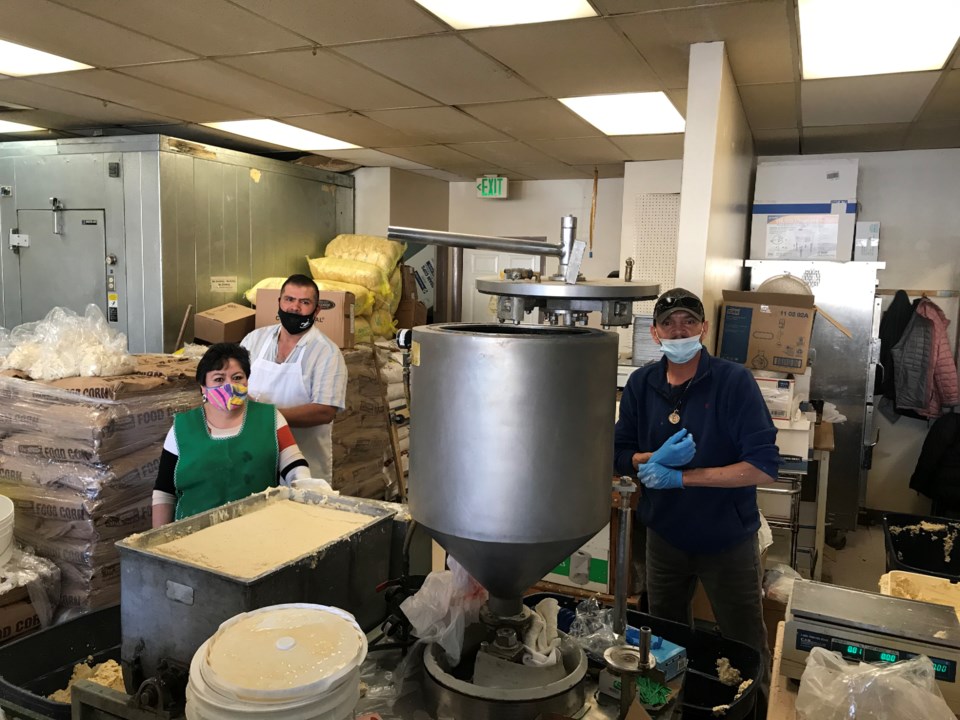 Miriam Guzman, Eriberto Orona and Alfonso Orona at Las Americas Tortilleria y Panaderia on Christmas Eve 2020. By Silvia Romero Solis
Miriam Guzman, Eriberto Orona and Alfonso Orona at Las Americas Tortilleria y Panaderia on Christmas Eve 2020. By Silvia Romero SolisTamales is one of the staple dishes each of these five families relies on for the holidays, all of which have opened the doors to their homes and traditions to share with the community their take on Christmas.
Cultural legacy for the next generations
For Mariela Espíritu Orzuna, a native from Puebla, México, keeping her traditions is most important to ensure her two children grow up knowing where they come from.
“My traditions are something I keep doing so my kids can learn them, for them to believe in something,” said Espíritu Orzuna, adding the most important element of her traditions is her faith. “I want them to learn that and to keep doing it even when I’m gone, for them to keep believing in baby Jesus.”
Dec. 24 is the day on which her family comes together to celebrate, even though they’ve adapted some of the traditions to incorporate American elements. “The 24th at night we prepare an altar and we lull baby Jesus to sleep by singing to him, then we dine together as a family. … On the 25th, we get up, have breakfast and open all of the gifts.”
Her family’s dinner traditions in Mexico include taquizas; pozole; beet, orange and peanut salad; and ponche, a traditional Mexican fruit punch often made using water, fresh and dried fruits such as tamarind, prunes and hibiscus, and cinnamon, and sweetened with piloncillo that can be served with or without alcohol.
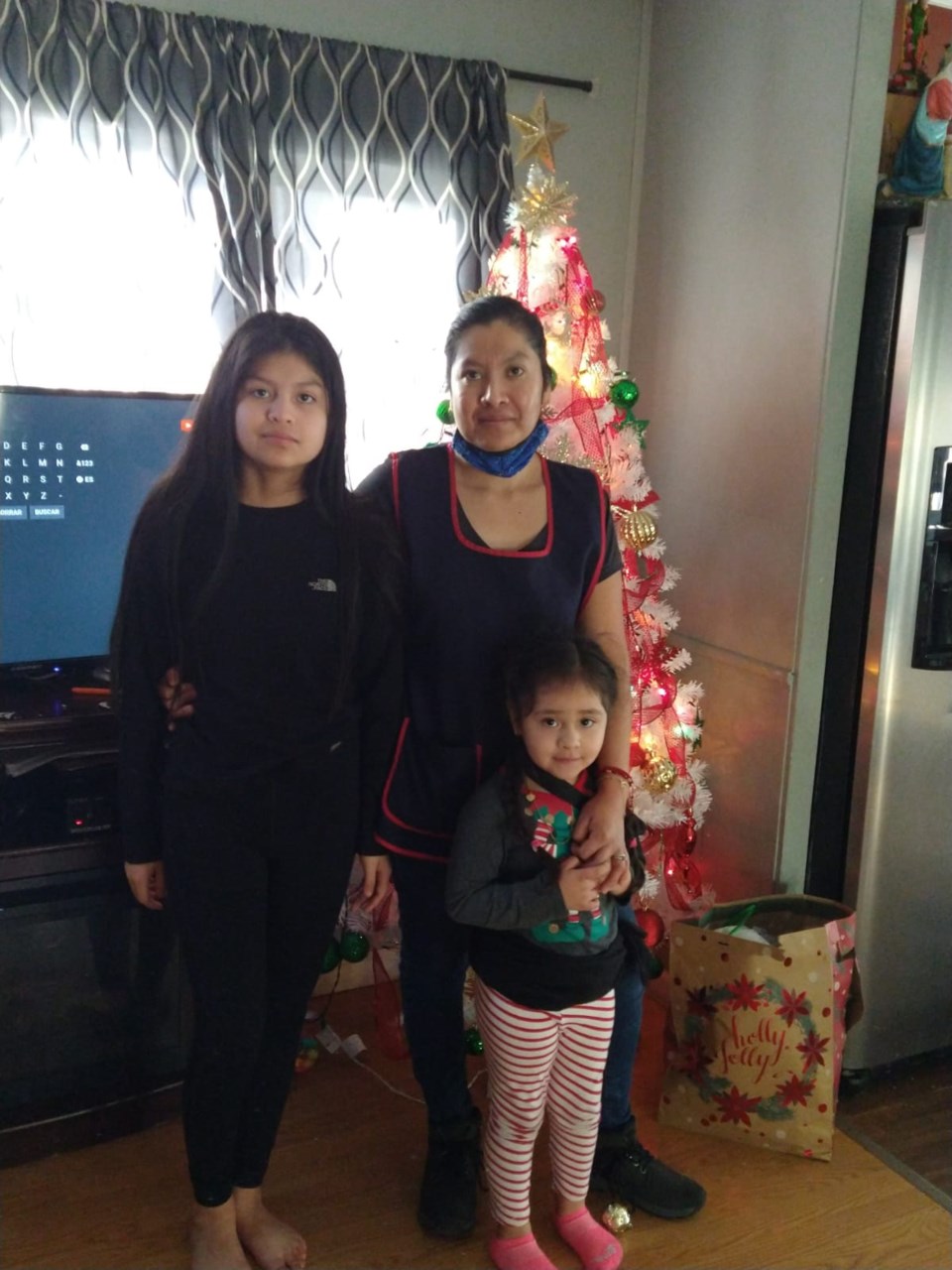 Mariela Espiritu Orzuna and daughters, Yeneli, left, and Alexandra on Dec 24, 2020. Courtesy photo
Mariela Espiritu Orzuna and daughters, Yeneli, left, and Alexandra on Dec 24, 2020. Courtesy photo“I try to not forget my traditions so tamales is something that we cannot miss at the table. This year we will prepare a shrimp and fish broth, tamales, ponche and café de la olla (a Mexican spiced coffee traditionally made with cinnamon, cloves, star anise and piloncillo).”
She will celebrate this year with only her children and husband because of the pandemic, however, she is thankful for the opportunity to be with her family.
“The most important thing for me is my faith, that my children continue to believe, and family union, for them to know at least that we are here together as a family,” she said.
Faith as an anchor
Rocio Nava Chavez, born in Durango, México, and a Longmont resident for more than 20 years, shares that fierce commitment to keeping traditions alive. A longtime early childhood educator and child care provider, she said Christmas is a time to remind her community and those she serves of the real meaning of the holiday — the coming of Jesus Christ.
“A posada signifies the arrival of baby Jesus into our homes, which is what gives Christmas its real meaning,” she said. “A posada is getting together, pondering about the meaning of Christmas with the children, sharing with them the meaning of piñatas, and singing Christmas carols.”
Dec. 16-24, eight families in Nava Chavez’s neighborhood for years have coordinated posadas for each of the eight days before Christmas.
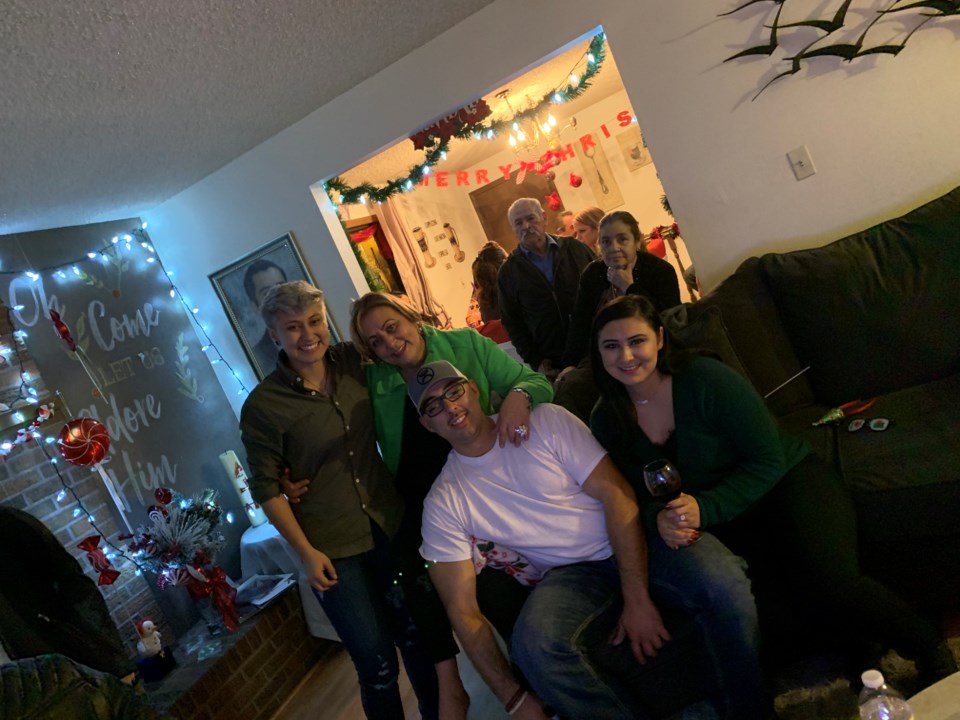 Rocio Nava Chavez and children Erika, left, Jorge Alejandro and Emma on Christmas Eve 2019 at their home in Longmont. Courtesy photo
Rocio Nava Chavez and children Erika, left, Jorge Alejandro and Emma on Christmas Eve 2019 at their home in Longmont. Courtesy photoMost of the families that take part in the posadas are Hispanic, however, white and American neighbors have joined the festivities to learn about the tradition, she said.
“Many children do not know what a posada means and I would love to be able to do a big event of this, invite all of the community to do a posada,” she said, adding she’s felt warmly welcomed in the city for the entire time she has lived here.
“I know people in Longmont are very approachable, very human, who support Latinos a lot,” she said.
This year, because of COVID restrictions, there will be no community posadas for Nava Chavez, but the celebration with her three children will take place with some tamales, buñuelos, ponche and a ham.
An open heart and open doors
Alma Longoria has been living in Longmont for more than 30 years after arriving from Chihuahua, Mexico, with her husband, Amado. As Protestant Christians, the arrival of Jesus Christ also is the anchor of her traditions.
“On Dec. 24, we prepare a special dinner with traditional Mexican food, which varies from one year to the next,” she said. “We make the dinner to give thanks to God for having sent his son, Jesus, and to celebrate this we give each other presents and decorate the house with the tree and lights.”
While this year she will spend the holiday only with those in her household, Christmas often entails large dinners with family and sometimes friends, with whom she said she enjoys sharing the gifts of her traditions.
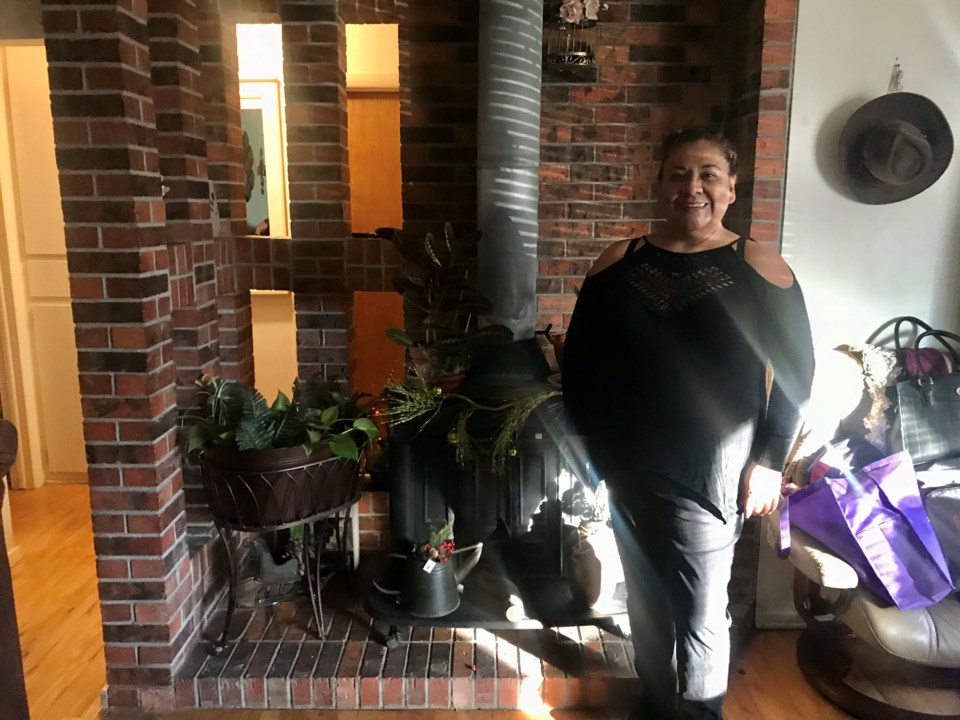 Alma Longoria at her home on Thursday, Dec. 24, 2020. By Silvia Romero Solis
Alma Longoria at her home on Thursday, Dec. 24, 2020. By Silvia Romero Solis“My house is your house, our home is your home, there’s always food on my table and we share however little or much we have,” she said. “To the white community, I tell them to take the chance to get to know us better, taste our dishes, share with us these holidays, in the ways in which we can offer them and with the traditions as we know them.”
To make room for old and new
For Alejandra Mondragon, Christmas is a time of nostalgia and gratitude. A native of Mexico State, Mexico, whose family still lives in Mexico, this time of year for many years meant missing all the things with which she grew up.
“For many years it was horrible, I had a feeling of deep emptiness, longing for Christmases back home, the posadas, going to church at night, traditions anchored there,” she said. “When I first got here I used to feel very bad. I wanted to skip Christmas altogether, and I was sad, but now, for a few years now, I’ve started to see things differently.”
Mondragon said she has made an effort to find gratitude in the things she has, especially her husband, her two children, Hector and Alex, and the blessings they enjoy.
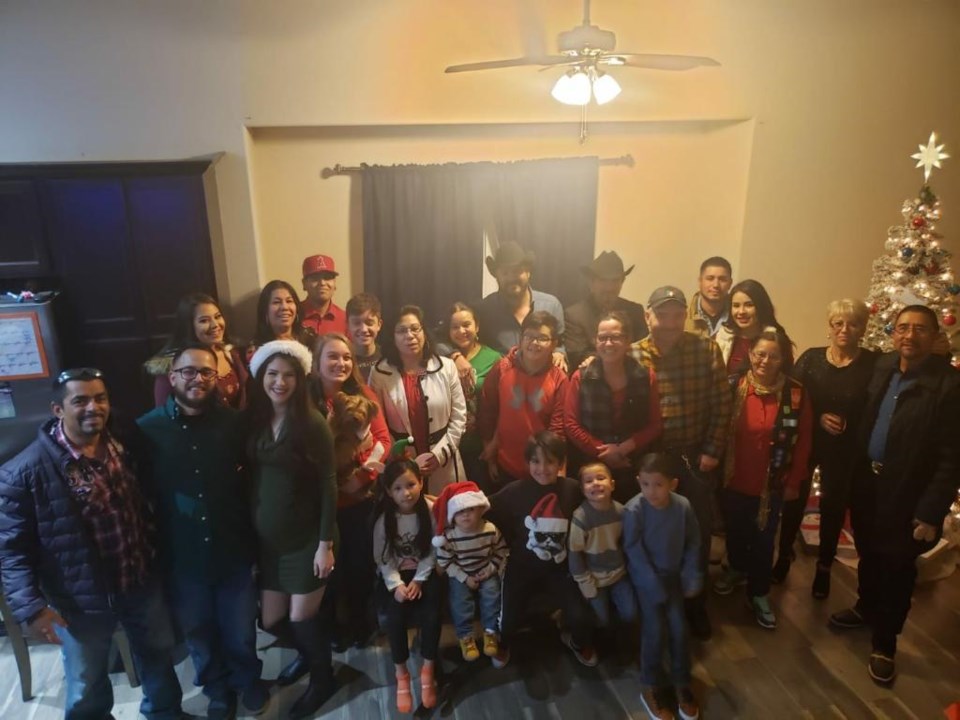 Alejandra Mondragon and family celebrating Christmas 2019 in Longmont. Courtesy photo
Alejandra Mondragon and family celebrating Christmas 2019 in Longmont. Courtesy photoAmong the changes to her celebrations is making space for people with different traditions and beliefs.
“It’s a mix of cultures, some of my husband’s cousins prefer to eat turkey, and my mother-in-law loves ponche … and we have both Christians and Catholics in the family,” she said. “Many Christians only give thanks, some Catholics celebrate the birth of baby Jesus, and there are others who only think about Santa Claus on the 25th. We try to incorporate everything so nobody feels left out.”
Because members of her family are at higher risk for COVID, especially her mother-in-law who works in a nursing home and her husband's grandfather, the family is taking the necessary precautions to ensure everyone’s health.
“We are thinking about those who are most vulnerable more than anything else,” Mondragon said. “This year the four of us and our puppy will just stay home.”
To remember those far away
For Ortiz Tremillo, missing those far away is a familiar experience, too. A native of Durango, Mexico, she has been in Longmont for almost four years. She moved to the United States when she married her husband, leaving her two grown children in her native town.
“My two children are in México, unfortunately … which makes me feel sad but it is what it is. The important thing is to be healthy, no matter where we are, to be well and healthy especially given the situation we are currently in.”
This is the first year Ortiz Tremillo will celebrate Christmas in the U.S., and she is excited to be able to bring to Longmont the holiday traditions and celebrations she keeps close to her heart, which for her and her family start with the day of the Virgin of Guadalupe.
“On Dec. 12 we celebrate the Virgin of Guadalupe, the patron saint of México … on this day, Catholics place flowers and decorate an altar, and we sing happy birthday to the virgin,” she said, adding this same day is when families often put up the manger or nativity scene in their homes near the Christmas tree.
“The nativity scene is something we’ve done since I was a little girl … we place the Virgin Mary, Saint Joseph and the manger for baby Jesus, and on the 24th is when we lull the baby to sleep and place him on the manger,” she said.
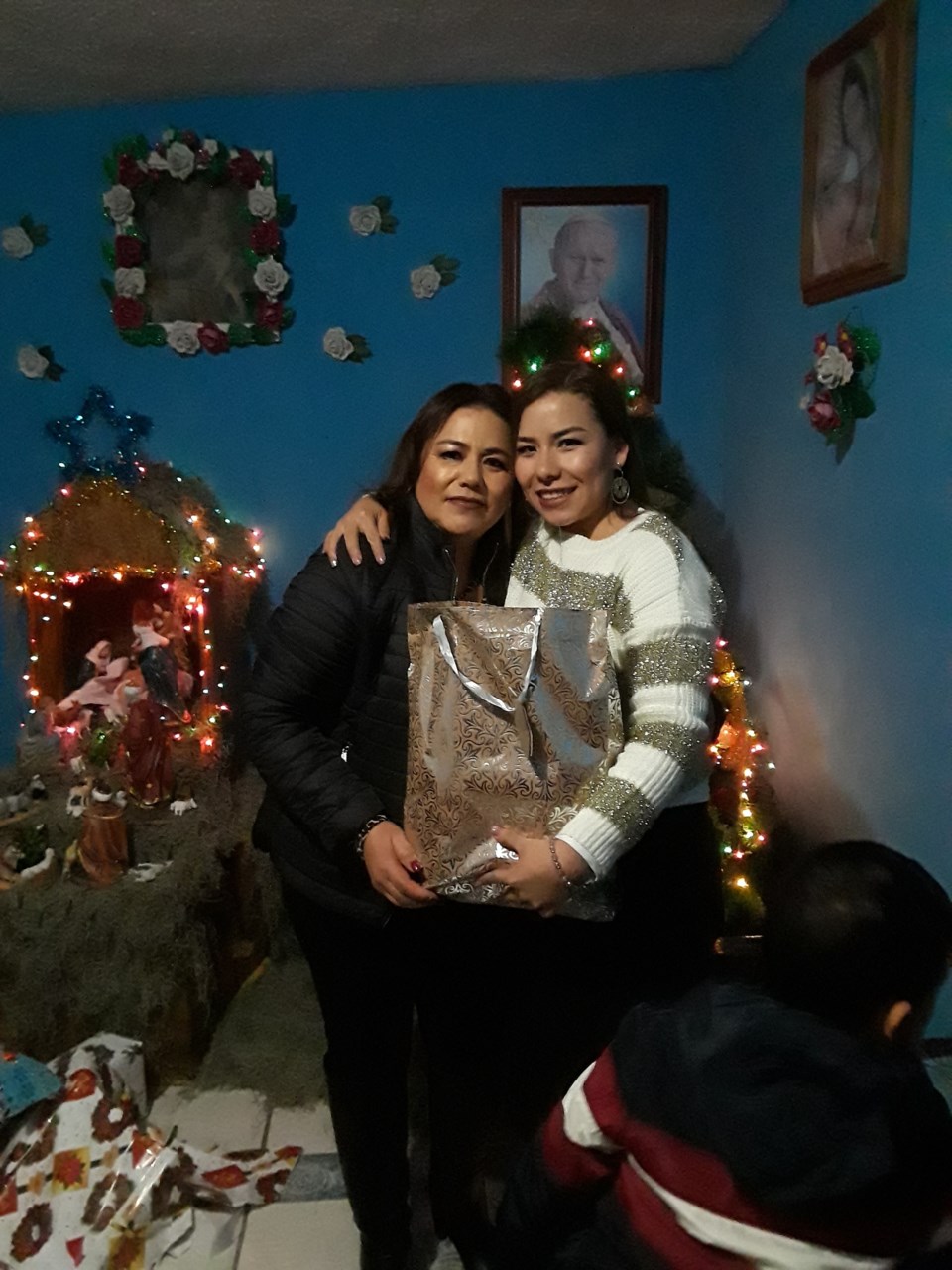 Carmen Ortiz Tremillo and her daughter, Perla, on Christmas Eve 2019 in Durango, Mexico. Courtesy photo
Carmen Ortiz Tremillo and her daughter, Perla, on Christmas Eve 2019 in Durango, Mexico. Courtesy photo“Even though we are here in the U.S … we must not lose our traditions, we must not forget our Mexico, with our buñuelos and ponche, we must keep the traditions. Getting together with the family is the most important thing, we must not lose our devotion to our families,” she said.
All five families have adapted their traditions and celebrations over the years with the passing of time and the addition of family members.
Longoria said Christmas this year will be different and potentially challenging for many, as everyone remains mindful of how to protect their families and the rest of the community during the pandemic.
“Don’t lose hope, keep up the traditions in spite of the situation in which we are currently living,” she said. “ Many of us have had tragic losses because of the pandemic, but life keeps going. The gift of Christmas is something immense that has transcended for centuries, and God is still the same as yesterday, today and tomorrow.”


